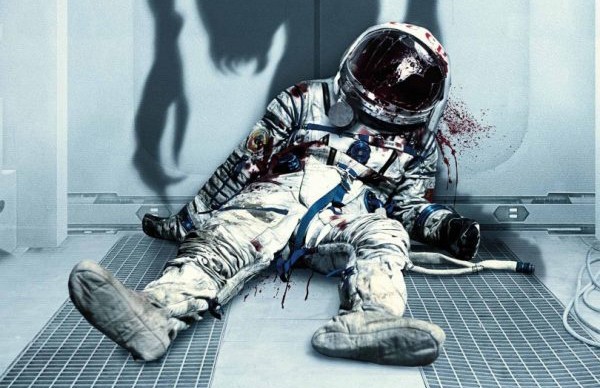Sputnik, 2020
Directed by Egor Abramenko
Starring Oksana Akinshina, Pyotr Fyodorov, Fyodor Bondarchuk, Anton Vasilyev, and Pavel Ustinov
SYNOPSIS:
The lone survivor of an enigmatic spaceship incident hasn’t returned back home alone-hiding inside his body is a dangerous creature.
This is not the exact line, but early on during Sputnik (a moderately sized Russian film from Egor Abramenko making his narrative feature-length debut) a character remarks that it’s the less intelligent who obediently follow orders. It’s a piece of dialogue that really lingers in the mind throughout the experience, as the film is more concerned with psychology than being a creature feature (although those elements are wholly embraced by the time things come to a bombastic climax). In almost every scene there are either fresh details emerging or lies coming to the surface, not only consistently recontextualizing what we think of these various scientists and Russian military personnel trying to cover up and contain a trip to space gone wrong, but reinforcing the notion that control is all-powerful no matter the dynamic. And maybe that’s already obvious, but it’s still fascinating watching the script from Oleg Malovichko and Andrei Zolotarev keep such a theme at the forefront of the proceedings.
Tatyana (Oksana Akinshina) is a psychologist with extreme methods that have gotten her into some hot water and about to be dismissed from her job, that is until Semiradov (Fedor Bondarchuk) comes to her with a job in a remote government facility. Contained there is the only survivor of a disastrous space-related incident during the docking procedure, cosmonaut hero Konstantin Veshnyakov (Pyotr Fyodorov) whose recovering amnesia is the worst of his worries. Somehow, there is a host living inside his body that likes to condense itself and come out at night exiting the body through his throat. It feeds on cortisol, it’s gradually strengthening its symbiotic bond with Konstantin, and it’s capable of releasing toxins that actually keep Konstantin passed out while it chills around outside the body during the middle of the night. Light also appears to be one of its weaknesses.
Taking place during the 80s space race and involving an unknown species, it makes sense that Egor Abramenko’s film is heavily inspired by Ridley Scott’s Alien, but there are more modern comparisons to make to something like say, Ex Machina, when one factors in that pretty much all of the dialogue conversations are exploring the psychological side of these characters. Konstantin’s supposed role as a hero is even called into question when Tatyana does some research revealing that he has made some unsavory sacrifices at the expense of his profession.
Naturally, there is also the oppositional ideologies between science and military, as one group wants to study the specimen while the other would love to weaponize such a deadly creature for war. In that sense, it’s not unlike The Shape of Water either, although Sputnik goes about its romantic elements in a much more traditional way. Elaborating on that, simply one of the best things Sputnik does best is taking so many key elements of a Hollywood blockbuster (sci-fi, solid performances, a heavy compositional score meant to make you feel for what’s happening even if it is fairly cliché but strongly executed, blossoming love, grandiose final standoffs) pulling them off well, and most importantly, with characterization and substance.
The CGI on the creature itself leaves something to be desired, and there’s also the feeling that the filmmakers could have made the audience wait longer to see it in order to cut down on the budget and make the more mandatory sequences where it is visible come across much more polished. With that said, Sputnik is also not just using this monstrosity as a vessel for bloody violence (rest assured, the movie boasts some of the most gnarly and brutal kills you will see in a movie all year) but as a metaphor for punishment. Sometimes if you simply have meaning behind something, it’s easy to overlook the flaws.
For such a dialogue-heavy film, Sputnik is surprisingly well-placed, as again, each conversation has depth and expands on the dangerous situation. That doesn’t necessarily mean the revelations are shocking, just that from a character perspective the movie works and earns its right to indulge in decapitations and gore. There is a twist ending that I’m not entirely sold on (it takes away from more elements to the film in order to say something greater about one character, while additionally not necessarily being explained well), but it doesn’t really undo much goodwill. Sputnik is a vicious treat with the right amount of psychology and sadistic pleasure.
Flickering Myth Rating – Film: ★ ★ ★ / Movie: ★ ★ ★ ★
Robert Kojder is a member of the Chicago Film Critics Association and the Flickering Myth Reviews Editor. Check here for new reviews, friend me on Facebook, follow my Twitter or Letterboxd, check out my personal non-Flickering Myth affiliated Patreon, or email me at MetalGearSolid719@gmail.com















